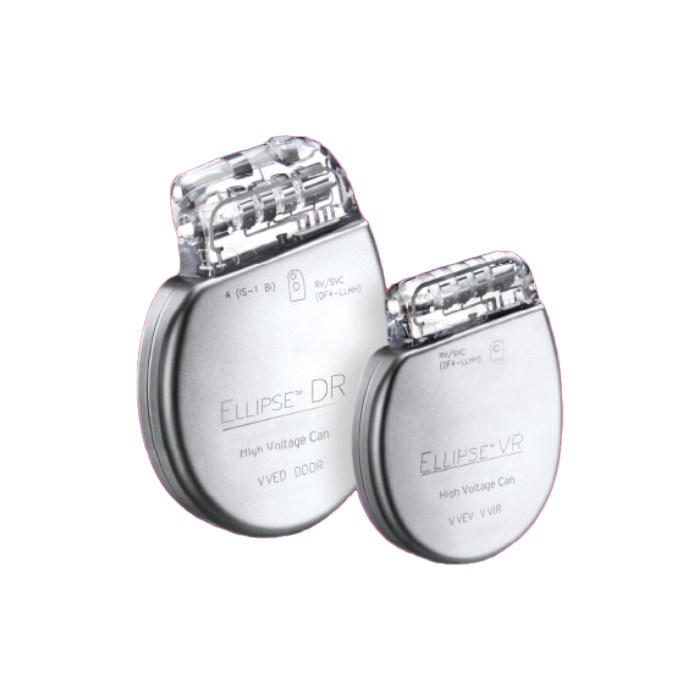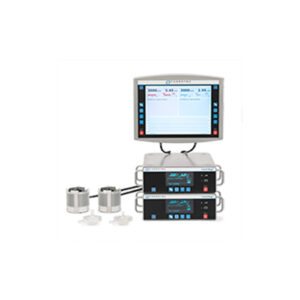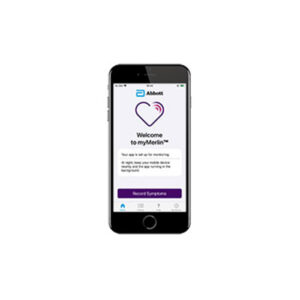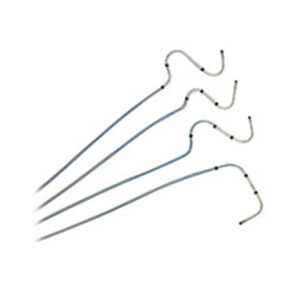Description
Rx only
Brief Summary:Before using these devices, please review the User Manual for a complete list of indications, contraindications, warnings, precautions, potential adverse events, and instructions for use.
Indications: The devices are intended to provide ventricular antitachycardia pacing and ventricular defibrillation for the automated treatment of life-threatening ventricular arrhythmias. AF Suppression™ pacing is indicated for the suppression of paroxysmal or persistent atrial fibrillation in patients with the above ICD indication and sinus node dysfunction.
Contraindications: Contraindications to the use of the pulse generator system include ventricular tachyarrhythmias caused by transient or correctable factors such as drug toxicity, electrolyte imbalance, or acute myocardial infarction.
Adverse Events: Possible system-related adverse events (in alphabetical order) include, but are not limited to:
- Acceleration of arrhythmias (device-induced)
- Air embolism
- Allergic reaction
- Bleeding
- Cardiac tamponade
- Chronic nerve damage
- Death
- Erosion
- Exacerbation of heart failure
- Excessive fibrotic tissue growth
- Extracardiac stimulation (phrenic nerve, diaphragm, chest wall)
- Extrusion
- Fluid accumulation
- Hematoma or cyst formation
- Inappropriate shocks
- Infection
- Keloid formation
- Lead wear and discontinuity
- Lead migration/relocation
- Myocardial damage
- Pneumothorax
- Current or insulating myocardium during defibrillation with internal or external paddles
- Potential mortality due to defibrillation or inability to pace
- Thromboembolism
- Venous congestion
- Venous or cardiac perforation.
Patients susceptible to frequent shocks despite antiarrhythmic medical management may develop psychological intolerance to an ICD or CRT-D system that may include the following:
- Dependence
- Depression
- Fear of premature battery drain
- Fear of shock when conscious
- Fear of losing shock ability
- Phantom shocker (ghost shock)
See the User’s Guide for detailed indications, contraindications, warnings, precautions and potential adverse events.
Ellipse™ ICD
Single Room
CD1411-36Q
Rx only
Brief Summary: Before using these devices, please review the User Manual for a complete list of indications, contraindications, warnings, precautions, potential adverse events, and instructions for use.
Indications: The devices are intended to provide ventricular antitachycardia pacing and ventricular defibrillation for the automated treatment of life-threatening ventricular arrhythmias. AF Suppression™ pacing is indicated for the suppression of paroxysmal or persistent atrial fibrillation in patients with the above ICD indication and sinus node dysfunction.
Contraindications: Contraindications to the use of the pulse generator system include ventricular tachyarrhythmias caused by transient or correctable factors such as drug toxicity, electrolyte imbalance, or acute myocardial infarction.
Adverse Events: Possible system-related adverse events (in alphabetical order) include, but are not limited to:
- Acceleration of arrhythmias (device-induced)
- Air embolism
- Allergic reaction
- Bleeding
- Cardiac tamponade
- Chronic nerve damage
- Death
- Erosion
- Exacerbation of heart failure
- Excessive fibrotic tissue growth
- Extracardiac stimulation (phrenic nerve, diaphragm, chest wall)
- Extrusion
- Fluid accumulation
- Hematoma or cyst formation
- Inappropriate shocks
- Infection
- Keloid formation
- Lead wear and discontinuity
- Lead migration/relocation
- Myocardial damage
- Pneumothorax
- Current or insulating myocardium during defibrillation with internal or external paddles
- Potential mortality due to defibrillation or inability to pace
- Thromboembolism
- Venous congestion
- Venous or cardiac perforation.
Patients exposed to frequent shocks despite antiarrhythmic medical therapy may develop psychological intolerance to an ICD or CRT-D system, which may include:
- Dependence
- Depression
- Fear of premature battery drain
- Fear of shock when conscious
- Fear of losing shock ability
- Phantom shocker (ghost shock)
See the User’s Guide for detailed indications, contraindications, warnings, precautions and potential adverse events.







